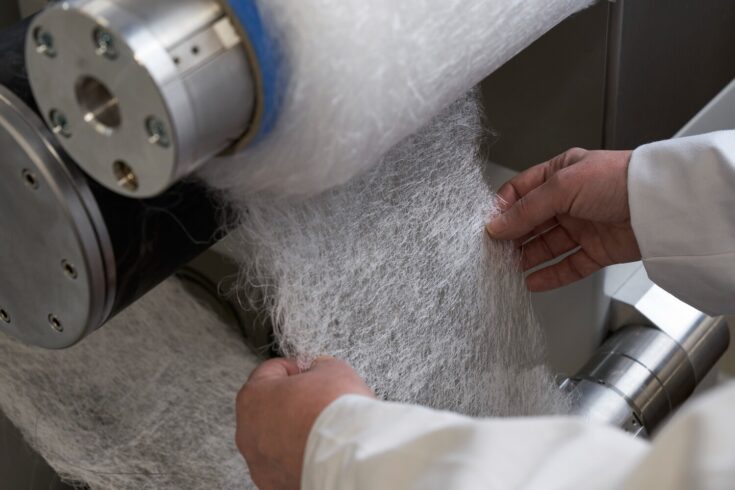This is a long term move for Design Council. From being funded directly by the Department for Business, Energy and Industrial Strategy, Design Council becomes part of the UK Research and Innovation (UKRI) family, while retaining all their status and identity.
The Arts and Humanities Research Council (AHRC) has long championed the creative industries, of which design is a sector, but we have increasingly seen design grow as a core methodology. Design was one of the most significant growth areas in the Research Excellence Framework 2021, reflecting the significance of the sector in universities. Design has been core to the Creative Industries Clusters, from our focus on sustainable fashion to the role of design and artificial intelligence (AI).
Building a green future
Most recently, AHRC has announced a £25 million investment in design in partnership with the Design Museum: Design the Green Transition. This will involve a 3-year Future Observatory at the Design Museum, which offers a national programme for design research supporting the UK’s response to the climate crisis, and will support:
- 4 Green Transition Ecosystems: capitalising on research and innovation clusters of design excellence, these are large scale projects that focus on translating the best design-led research into real-world benefits to address distinct challenges posed by the climate crisis
- 75 Design Exchange Partnerships: these partnerships bring researchers into collaboration with non-academic partners, such as local councils and businesses, to address the climate crisis across annual themes
- 50 Design Accelerators: these projects will demonstrate how the design research and innovation at universities throughout the country is vital for their local communities’ successful transition to net zero and a green economy
Moreover, our design work is part of and influencing UKRI’s strategic narrative ‘building a green future’, and we are partners with the Natural Environment Research Council and Innovate UK on an important programme on circular fashion.
The link to Design Council felt very natural and right.
The Design Council’s Design for Planet mission aims to accelerate the speed with which design is driving a sustainable and regenerative future. The climate crisis means we need to redesign nearly every aspect of how we live our lives and that means not just products, services and places, but the system changes required to achieve a seismic shift.
As The Rt Hon. the Lord Deben, Chair of the Climate Change Committee commented recently:
We won’t win the battle against the climate crisis unless we design the solution.
The design economy

Credit: Design Council
Although a lot of our partnership has been framed within the context of our current climate challenges, this is not where the partnership stops. Design is fundamental to how we understand our world and how we build forwards together.
From design as methodology across the whole of science, to design as a way to improve inclusivity through supporting differently abled individuals to participate in and enjoy experiences we can take for granted. From design as a driver of efficiency, innovation and economic growth, to design as a champion of beauty.
This is a way of thinking and living that changes the world:
- the design economy contributes £85.2 billion gross value added
- £1 invested in design provides £20 in return
- companies that use design outperform their peers by 200% but 80% of the environmental impact of new products is determined at the design stage
The future of design

Credit: Design Council
There are challenges too. Both AHRC and Design Council are committed to promoting the importance of design skills at school, and in further and higher education. Design Council’s recent design economy report, the largest survey of its kind, showed dramatic recent falls in take up of design at GCSE. The Design and Technology Association have additional recent research and insight into the actions that need to be taken.
We need a better curriculum, and we need to work together to demonstrate a clear line from school to tertiary education to sustainable skilled jobs and meaningful impact on our world. This is a long-term project, but one which we both believe is essential.
The Design Council was founded in 1944 to face the challenges of a post-war world. It led and championed the wave of British success in carrying brilliant and responsible design across the world. The world-renowned Double Diamond is a framework for innovation that helps designers and non-designers across the globe tackle some of the most complex social, economic and environmental problems.
AHRC is a champion for responsible and sustainable innovation within UKRI, leading on responsible AI, tackling health inequalities and building resilient communities through creativity. We partner with the greatest cultural institutes in the world such as the British Library, British Museum, and the National Museums of Wales and Scotland – and now with Design Council.
And together with Design Council and our other partners, we champion arts and humanities and design for everyone.
We are delighted to be working together to deliver Design Council’s vision, for a world where design works as a force that restores, renews and revitalises. Regenerative in every sense, for people, planet and economic health.





